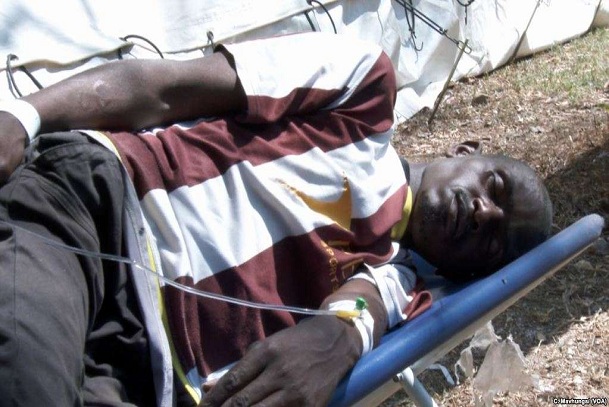 Wash your hands regularly and wear a face mask.
Learn more
Wash your hands regularly and wear a face mask.
Learn more

Following the death of 20 people and more than 2000 people infected after drinking contaminated water, the new Health Minister, Obadiah Moyo declared a Cholera Outbreak in Zimbabwe on Tuesday.
“We are declaring an emergency for Harare. This will allow us to contain typhoid, cholera, and whatever is going on.
“We don’t want any further deaths,” Moyo said after concluding a hospital tour in the capital.
According to NAN, authorities on Monday announced that 18 people have died over the past week in the country’s capital, Harare, and scores have been infected after cholera and typhoid outbreak in some areas.
These outbreaks are not alien as local authorities still battle with the challenges of providing clean water and appropriate sanitation facilities in the city, where slums without running water have slowly increased and whose infrastructure are failing due to decades of neglect.
A large number of suburbs go without running water for weeks, forcing residents to turn to unsafe sources.
NAN’s report also indicated that there was a cholera outbreak from August 2008 until June 2008.
The outbreak which began in Chitungwiza in Mashonaland East Province in August 2008, then spread to other parts of the country and by December 2008, cases were being reported in all 10 provinces.
The Zimbabwean government declared the outbreak a national crisis and called for international aid.
The epidemic peaked by January 2009 with nearly 8500 cases reported every week.
Cholera cases from this outbreak were also reported in neighbouring countries including South Africa, Malawi, Zambia, Mozambique, and Botswana.
The outbreak was brought under control with the help international agencies, and by July 2009 after no cases had been reported for several weeks, the Zimbabwean Ministry of Health officially declared the outbreak over.
A total of 98,596 cases of cholera and 4,369 deaths were reported, making it the largest case of cholera epidemic ever reported in Zimbabwean history.
The severity of the outbreak was blamed on poor sanitation, insufficient health infrastructure and limited access to health care services throughout Zimbabwe.
Reuters/NAN